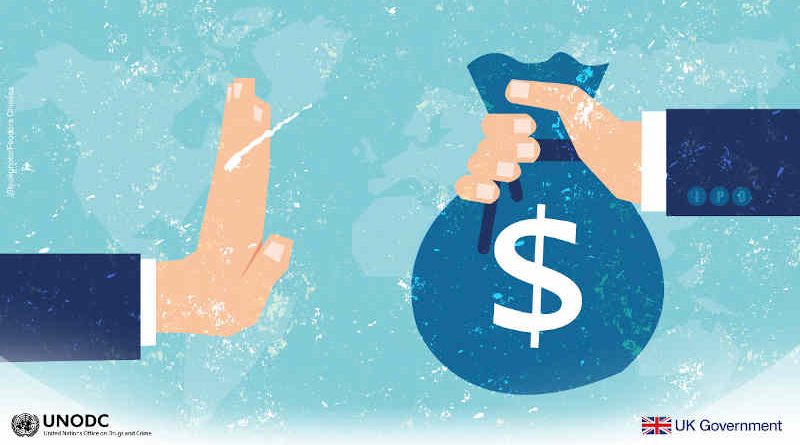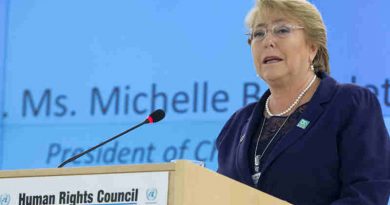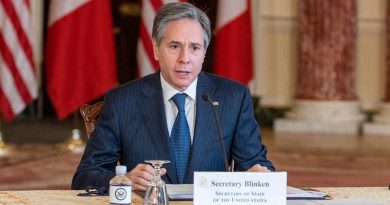United States Sanctions Corrupt Actors in Paraguay

The imposition of sanctions is a weak punishment, which is ignored by the authoritarian and corrupt nations.
The U.S. Department of the Treasury’s Office of Foreign Assets Control (OFAC) sanctioned three Paraguayan individuals – Kassem Mohamad Hijazi, Khalil Ahmad Hijazi, and Liz Paola Doldan Gonzalez – on August 24 for their roles in corruption in Paraguay, as well as five associated entities connected with their corruption schemes.
These individuals and entities are designated pursuant to Executive Order (E.O.) 13818, which builds upon and implements the Global Magnitsky Human Rights Accountability Act and targets perpetrators of serious human rights abuse and corruption around the world.
The OFAC said in its statement that corruption degrades the rule of law, weakens economies and stifles economic growth, undermines democratic institutions, perpetuates conflict, deprives innocent civilians of fundamental human rights, and is intrinsically linked to money laundering and lack of financial transparency.
|
Sanctions Don’t Stop Crime and Corruption The imposition of sanctions is a weak punishment, which is ignored by the authoritarian and corrupt nations. In the past, countries such as Belarus, Cuba, China, Myanmar, Nicaragua, Russia, and North Korea have been sanctioned, but authoritarianism, corruption, and human rights violations have only increased in these countries. ~ Rakesh Raman |
“These designations under the Global Magnitsky sanctions program show that we are committed to combating corruption and promoting accountability for officials who undermine government institutions,” said Office of Foreign Assets Control Director Andrea M. Gacki. “The Treasury Department will continue to use our authorities to prevent illicit actors and their front companies from abusing the international financial system which hurts people around the world who play by the rules.”
These actions were conducted in coordination with the Drug Enforcement Administration (DEA) Miami Field Division, its Special Operations Division’s Counter-Narcoterrorism Operations Center (CNTOC), DEA’s Office of Financial Operations, and the Homeland Security Investigations’ (HSI) Long Island, NY office. The U.S. government is using all available mechanisms to identify acts of corruption and promote accountability for corrupt actors and disrupt their access to the U.S. and international financial system.
The U.S. decision to impose sanctions highlights the illicit finance risks and activities in the Tri-Border Area (TBA) where Argentina, Brazil, and Paraguay converge. Historically, the TBA has been an attractive and permissive financial environment for criminal and terrorist activities.
This region is marked by a large number of unregistered money exchange houses, trade based money laundering through export-import and retail businesses in the electronics and automotive sectors, the lack of awareness of money laundering and terrorist financing typologies and risk in the private sector, the intensive use of cash by businesses and individuals, and a large volume of transfers to high risk jurisdictions.
|
The Role of Despachantes in Corruption Despachantes or dispatchers are individuals skilled at navigating local and federal bureaucracies by using their expansive networks of government officials to aid them in their activities. Complex government bureaucracies coupled with a lack of transparency and accountability in countries such as Paraguay create business opportunities for these individuals to navigate the lengthy and expensive administrative processes of local and/or federal governments for both licit and illicit purposes. Historically, despachantes have focused on using their networks within customs agencies to accelerate the processing of imported and exported goods over countries’ borders. However, more recently, this practice has expanded in scope to include various other government operations. Illicit despachantes are known for their ability to bribe customs officials, alter invoices on incoming merchandise, avoid taxation and/or inspections, and provide safe passage for illicit goods coming into Paraguay. Many despachantes have reportedly engaged in paying government officials to expedite certain processes, a practice that is illegal and often flags these individuals as targets of corruption investigations. |
As a result of U.S. sanctions, all property and interests in property of the persons above that are in the United States or in the possession or control of U.S. persons are blocked and must be reported to OFAC. In addition, any entities that are owned, directly or indirectly, 50 percent or more by one or more blocked persons are also blocked.
Unless authorized by a general or specific license issued by OFAC, or otherwise exempt, OFAC’s regulations generally prohibit all transactions by U.S. persons or within (or transiting) the United States that involve any property or interests in property of designated or otherwise blocked persons.
The prohibitions include the making of any contribution or provision of funds, goods, or services by, to, or for the benefit of any blocked person or the receipt of any contribution or provision of funds, goods, or services from any such person.



